and The Little-known Heroes Of The Moon Walk Broadcast

AS POLITICIAN-turned-writer Andrew Tink viewed the opening scenes of the 2000 film The Dish, he thought “wrong person, wrong place” as he watched actor Sam Neill playing fictional character Cliff Buxton walk towards the Parkes radio telescope. The film portrays Australia’s role in relaying live television footage of the first man on the Moon during the 1969 Apollo 11 mission. But it omits the pivotal role of NASA’s Honeysuckle Creek Tracking Station, about 300km south of the Parkes Observatory, near Canberra.
Honeysuckle provided the historic live footage of Neil Armstrong stepping onto the Moon that was seen by more than 600 million people worldwide at 12.56pm (AEST) on Monday 21 July 1969.
Andrew has made it his mission to right the record and recognise the crucial role of the Honeysuckle team, particularly station director at the time Tom Reid, in bringing those images – some of the most watched footage in human history – to the world.
AFTER 19 YEARS as a member of the NSW Legislative Assembly, I stepped down in 2007 and took up writing, mostly biographies. I knew Tom Reid, who’d been the station director of NASA’s Honeysuckle Creek Tracking Station during the Apollo 11 mission, through his daughter Marg – we’d dated during the early 1970s.
Although I didn’t understand exactly what role Tom and his team at Honeysuckle had played in televising the live broadcast of Armstrong’s first steps on the Moon, I knew it had been important and I wanted to tell Tom’s story. I knew him well enough to understand that he would never have agreed to me writing about his NASA career. Not one to blow his own trumpet, Tom would have done his best to dissuade me.
Denne historien er fra July - August 2019-utgaven av Australian Geographic Magazine.
Start din 7-dagers gratis prøveperiode på Magzter GOLD for å få tilgang til tusenvis av utvalgte premiumhistorier og 9000+ magasiner og aviser.
Allerede abonnent ? Logg på
Denne historien er fra July - August 2019-utgaven av Australian Geographic Magazine.
Start din 7-dagers gratis prøveperiode på Magzter GOLD for å få tilgang til tusenvis av utvalgte premiumhistorier og 9000+ magasiner og aviser.
Allerede abonnent? Logg på
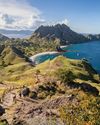
SULAWESI SENSATIONS
There are worlds within worlds and marvels untold waiting to be experienced on Indonesia's remote islands.
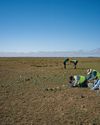
SEARCHING FOR AUSSIE DINOSAURS
Our understanding of where to find ancient life in Australia has been turned on its head by a new appreciation of the country's geology. Now the world is looking to our vast outback as the latest hotspot to locate fossils.
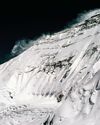
THE HARDEST NIGHT
The first Australian ascent of Mt Everest in 1984 is one of the great feats of mountaineering. Climbed by a small team semi-alpine style, with no bottled oxygen, via the Great (Norton) Couloir, it remains unrepeated 40 years later.
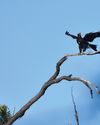
WEDGE-TAILED WONDER
The chance discovery of an eagle nest leads to an extended vigil observing normally hidden behaviours of one of nature's supreme winged marvels.
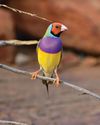
BURDENED BY BEAUTY
Northern Australia's Gouldian finch survives in huge numbers in cages around the world, but its wild population continues to struggle.
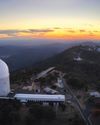
A TELESCOPE FOR A GOLDEN AGE
After a stellar 50 years as one of the country's major scientific assets, the AAT continues to play a major role in keeping Australian astronomy on the world stage.
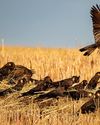
COCKY WHISPERING AT COOMALLO CREEK
This patch of remnant bush on the edge of the West Australian wheatbelt is a place loved by one of Australia's rarest bird species and the man who has studied the site for more than 50 years.

A PIONEERING PAIR
Louisa Atkinson and her mother, Charlotte, were among Australia's earliest authors, and pioneers in women's rights.
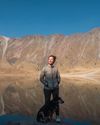
THE LONGEST WALK
Lucy Barnard is walking from Argentina to Alaska -the length of the Americas - on an extraordinary journey of endurance and adventure.
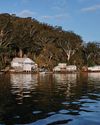
SECLUDED, BUT NOT ALONE
In an era of heightened social isolation, where many of us lead lonely lives, Dangar Island offers the chance to be part of a supportive, connected community.